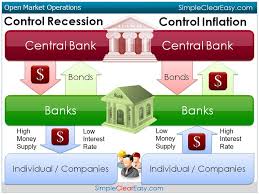As we already know, there are five steps in the process of management, that are to say; planning, organizing, staffing, directing and controlling. But the scope of management is not only restricted to these five steps. There are many other areas in the organization that need to be managed. They can be physical resources as well as human resources. For case in point, ‘Human Resource Management’ is very imperative in an organization to make sure there are enough people in the workforce and their needs are met. In another example, marketing management is integral for any business to ensure that they are able to recognize a target audience and do everything necessary to make their product available for sale to the target audience. Also, a very crucial resource for any organization that needs management is the department of finance.
So what is financial management?
In plain terms, it is managing the money (finances) of a business. Keeping track of where money in an organization goes, where it comes from, how much of it needs to be spent, etc is what financial management is. A more sophisticated definition would be- financial management is the effective and efficient management of funds in an organization with a view to achieving predetermined objectives. There are three rudiments of financial management, namely; decisions about investments, financial decisions and dividend decisions. Investment decisions include deciding whether or not to invest, and how much to invest in fixed as well as current assets. Money investments made in fixed assets are known as capital budgeting and investing in current assets is called a working capital decision.
What are the main aims of financial management?
- To ensure there is sufficient and regular supply of funds in an organization.
- To declare satisfactory dividends to shareholders
- To ensure funds procured are utilized with maximum efficiency and minimum cost
- To ensure funds, if invested, are in safe hands
- To ensure there is a balance of debt and equity in the capital structure
Now that we know what financial management is and what are its objectives, let us look at the functions of financial management. In other words, how does financial management aim to achieve its objectives?
- Estimating capital requirements – Based on the costs, earnings and future plans of the company.
- Determining capital composition – Based on the capital (equity) of the company and how much needs to be obtained from banks and other financial institutions (debt).
- Investing funds – In profitable ventures with high rates of return.
In summary, financial management is important for every business in today’s world and it should be given equal importance as any other activity in the business.
Click here for government certification in Management
Click here for government certification in Accounting, Banking & Finance





7 Comments. Leave new
Good work.
Good job done 🙂
Informative 😀
Informative:)
Nicely presented!
Nice article…
Well defined. 🙂